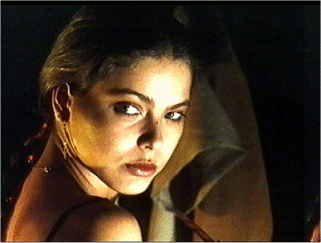“The Age of Movies: Selected Writings of Pauline Kael,” edited by Sanford Schwartz is a new release from the Library of America and it’s been getting a lot of press along with Brian Kellow’s Kael biography. I’m going to blog about P. Kael, who is one of my favorite writers, all week and will include all the links fit to click.
For starters, here’s a recent conversation I had with Sanford Schwartz.
Check it out:
Bronx Banter: What was your approach in selecting the material for this book? My first impression was that it seemed thin, but then I checked and it is almost 800 pages, anything but thin. Then again, I grew up reading Kael and have all of her books. Is the ideal reader for this book someone who is unfamiliar with her work?
Sanford Schwartz: My first aim in selecting Pauline Kael pieces was to give the range of her thinking and sensibility. As a kid of shadow story, I wanted the selections to give a rough sense of movie history during the years she wrote. I wanted there to be representative pieces on the actors and directors who meant most to her. So there are a number of reviews on Altman, Godard, Scorsese, and so forth. I hoped that the anthology would engage people who already knew her—but unlike you didn’t collect all her books over the years—and also people who, in their twenties and thirties, don’t know who she is. It is always a surprise to run into people who have never heard of her, and I have found that most young people haven’t.
BB. Kael was close to fifty when she started reviewing movies for the New Yorker though she’d been writing for some time. How do you think this influenced her voice as a writer, as opposed to other critics who get their start much earlier?
SS: I’m not sure that it meant a lot. Her having waited so long and absorbed so many movies along the way obviously couldn’t have hurt when it came to writing with authority and conviction. But that certainty was evident in her letters from the late 1930s and early 1940s, when she was in her early twenties—except that her subject was still unclear to her. And it was fortuitous, her coming into the field when she did—an art form was being revitalized.
BB: What did Kael bring to movie criticism in the 1960s and ’70s that set her apart from her contemporaries?
SS: Kael made reading movie reviews a more intimate and personal experience than it had ever been before. Little criticism of any kind conveyed a comparable sense of there being such a powerful, funny, opinionated, scarily shrewd, and common sensical voice there, talking to you. You wanted to know what she thought about everything. You don’t feel this with most journalists, whether they are reviewing an art of doing a political column.
BB: One of the quirks that Kael was famous for was only watching a movie once. She’s been criticized for that over the years, that it suggests a lack of reflection or the possibility that a work of art can change for you. What is it about watching a movie only one time that informed the way she wrote about it?
SS: First off, it should be noted that there were times when she saw a movie more than once. I saw a number of movies with her when it was her second time. But then it was usually because she was checking something. I think she joked about falling asleep during Bresson’s “Diary of a Country Priest” both times she saw it. How many times she saw a movie was conditioned, actually, by her generally tight writing schedule; she usually didn’t have the time to see a movie twice. But the deeper point with this issue concerns the importance of instinct for her. She believed our truest response to a movie (or any art) was our first one, and she wanted to catch that. It was also a matter of temperament. She had on-the-spot judgments about many things. That was how she operated. Movies for her, even the great, complex ones, were about the senses in a way that books were not, and in seeing a movie once and trying to recapture its immediate impact she was, in her thinking, being true to the experience it offered.
BB. Did you re-watch any of the movies whose reviews you included in the collection?
SS: I saw some again, and initially I thought it would be good to re-see many of them. But my sense if that going back to films I loved years ago is hazardous. You re-see Truffaut, Satyajit Ray, or “The Leopard” and part of you must confront ways that the movie, and you, have changed—and altogether the event is more about time than the movie. How movies age is an interesting topic. Kael talked about it in “Movies and Television.”
BB: You’ve included her most famous reviews, ones she was chided about for over-praising like “The Last Tango in Paris,” “Nashville,” and to a lesser extent, “Casualties of War.” How do you think her takes on those movies stand up?
SS: I can’t say how her reviews of those movies hold up because I haven’t seen them recently. My hunch is that she did go overboard on them. I probably felt that then. But of course the reviews had to be in any anthology of her work. They were major pieces for her. They are statements of her belief.
BB: Kael has been ridiculed for her enthusiasm for those movies, but her take on other “classics” of that time period, particularly two “Godfather” movies or “Mean Streets” or “Shampoo” seem spot on. Are there any particular movies that she loved where you feel that her writing is especially sharp?
SS: I wasn’t that interested in whether she was, as you say about some of her reviews, “spot on.” In reviewing an art, reasoning and descriptions count for much more than opinion. As to what I think she was especially sharp on, I hope “The Age of Movies” provides an answer. Are there many more pieces that might have gone in? For sure.
BB: I like that you’ve included her major essays like “Trash, Art and the Movies,” “Why Are Movies So Bad? or The Numbers,” and the long one on Cary Grant, “The Man From Dream City.” And especially an early on, “Movies, the Desperate Art.” But you did not include her celebrated essay on “Citizen Kane.” Is that because it was just too long or because you feel it doesn’t hold up as representative of her talent?
SS: No, the Kane article, as I say in the Introduction, is too long to be included.
BB: One of Kael’s first memorable articles was “Circles and Squares,” a harsh take on fellow critic Andrew Sarris’ ideas about the auteur theory. Why did you not include that one?
SS: I didn’t include the Sarris essay because it is too long for the points it makes. It would have hogged space from livelier writing—writing that meant more to Kael. There are good words in it on what criticism meant for her. If I had excerpts in the anthology I probably would have excerpted those passages. I felt also that readers for whom “auteur” issues mater would already know Kael’s piece, whereas for the wider audience that she wrote for at The New Yorker, and for whom “The Age of Movies” is intended, her deflating this theory—it is really a set of opinions—is not a very engaging issue. And while I think she nails Sarris and the whole approach, she doesn’t do it in a way that opens up the topic to the general reader. Unless you are already familiar with the auteur line, her essay is rather confusing, especially at the beginning. It isn’t an essay that had much long-term meaning for her; she never could take that stuff seriously.
BB: Kael’s review of the documentary, “Shoah,” was famous because she panned it but it’s not here.
SS: I didn’t have a powerful reason to skip the “Shoah” review. Probably, it was a matter of space and also the sense that the reasoning and attitude on display there was already clear from other articles. It is certainly a strong one, though.
BB: During the ’70s, Kael shared her position writing “The Current Cinema” at the New Yorker with Penelope Gilliatt. As a result, there are some classics from that time that she never reviewed properly like “Annie Hall,” “Dog Day Afternoon” (though she does mention this one in a notes column), and maybe especially, “Apocalypse Now.” Were there any movies that you missed her reviewing?
SS: Even with her half-year schedule in the beginning, I believe she managed to encompass the major films of her era (but a movie historian might have another view of this). If a movie was taken seriously or touched hot issues for people—and it came out when she was off—she generally managed to find a way to her her verdict in somewhere. The long articles she periodically wrote during the time she was off let her do just that. She used a piece ostensibly about actors to acknowledge “Jaws” and she let people know where she stood on “2001” in “Trash, Art, and the Movies.”
BB: Kael had her favorites—Peckinpah and DePalma, to name just two—and those who she was famous for blasting, like Kubrick and Woody Allen. But she actually took each movie as it came, and I like that you’ve included “Lolita,” which she adored and as well as “A Clockwork Orange,” which she hated. Same goes for the early Scorsese hits, “Mean Streets,” and “Taxi Driver,” again, which she loved, and “Raging Bull,” which was the first in a long line of his movies that turned her off. Even though she was famous for her prejudices do you feel that she always gave a new movie an equal chance?
SS: Oh, yes. That is one reason I included her review of Bergman’s “Shame.” The piece shows her wrestling with the fact that a director with whom she was often at odds made a movie she had to call a masterpiece. She could always say when someone she admired—Altman, Godard, Bertolucci, Huston, even Renoir—came out flat. Her subject was the film at hand, not someone’s reputation or the credit they might have built up. She didn’t much like Robert Duvall, but after she saw “The Apostle,” which he directed and wrote as well as starred in, she said something like, “You’ve got to hand it to the bastard.”
BB: Kael once said that she never wrote a memoir because, “I think I have” in her reviews. She brought her life’s experience to her reviews, from what she knew about music and books and the theater, but also from what she knew about being a mother, having her heart broken in relationships, everything. Do you think you the story of her life can be found in her work?
SS: Yes, if the story of her life is constituted by her awareness and judgments. I don’t think she was the kind of artist whose life experience mirror or can be seen as a counterpoint to their work. For Agee and Farber, yes; their movie reviews tell us things about each man’s total contribution that we might not know otherwise. Kael, though, put most of what counted in her life in her reviews.
BB: She also once said “In movies, judgment is often not so important in a critic as responsiveness to what a movie feels like, and where it’s heading and what its vision is.” She was very tuned in to the reaction movies had on audiences, especially during her heyday in the early ’70s. Was there any other critic during that time, or any other time, that was as invested in how movies were received by popular culture and what it all meant?
SS: I believe you need a movie historian to answer this one. My feeling is that she got more of the ramifications of movies—their relation to the wider culture and society in general—than most film writers.
BB: This collection is spare toward the last 10 years of her career. Is that because the cultural moment of the movies had passed by the mid ’80s or because you were running out of room? Even though the pieces in her final two collections, “Hooked,” and particularly, “Movie Love,” are terse compared with her earlier writing, I think they had a lovely, compact quality. Were there any reviews that were hard for you not to include?
SS: Kael herself said that her strongest collections were those that covered the films of the 1970s. The movies were richer then. They brought out more of her. And she was first luxuriating in all the space The New Yorker gave her. It is possible that if she had first started reviewing in 1980 her pieces might have been longer and more nuances—even considering the quality of the movies. As it was, by the mid-1980s she had already put forth in some detail her aesthetic and social positions. I agree with you, though, about the “lovely, compact quality” of her reviews of the eighties.
BB: I recall Kael once writing with admiration for the discipline it took Altman to achieve a style that appeared casual and loose. I often think about that when I consider her writing—it is conversational but don’t you think it must have taken a lot of discipline to achieve that effect?
SS: Kael was almost always writing with a deadline, so the words had to come fast, and by nature she was suited to spilling her feelings. But she had to do a lot of work to get the reviews in shape. She could be making substantive changes right to the last minute.
“The Age of Movies” is out now and you can order it here.
As a follow-up to my conversation with Schwartz, I dipped into my library for more Kael and found this in “Afterglow: A Last Conversation with Pauline Kael,” by Francis Davis:
Well, the auteur theory originally meant something quite different from what people understand it be mean now. What it originally said was that a director conferred value upon a film—that if a director was an auteur, all of his films were great. I think the public never understood that, and neither did most of the press. It was an untenable theory, and it fell from sight. It’s now taken to mean that we should pay attention to who directed a movie, because a director is vital to a film, and of course this is true. But it’s something that everybody has always known. I mean, everybody knew that Howard Hawks was terrific. We went to see “To Have and Have Not” and “The Big Sleep” the day they opened, and there was an excitement in the theater, because we all knew that these movies were special. They were smart, and we loved the work of smart directors, because lots of movies were so dumb…But the auteurists considered all of his movies to be wonderful by definition, because he was an auteur. It reached a point where they were acclaiming the later movies of directors who had ceased doing good work years earlier. Hitchcock’s later movies were acclaimed, and they were stinkers—terrible movies. And many routine action movies were praised because they were the work of certain directors.
It’s sometimes discouraging to see of a director’s movies, because there’s so much repetition. The auteurists took this to be a sign of a director’s artistry, that you could recognize his movies. But for all of a director’s movies to be alike in some essential way can also be a sign that he’s a hack.
And this on Andrew Sarris:
We both loved movies. We had that in common, and I enjoy reading him as I enjoy reading very few critics. He has genuine reactions to movies, and many critics don’t. He picks things up and points things out…The big difference between us is that our taste in movies is so radically different. He really likes romantic, classically structured movies. He had very conservative tastes in movies; he didn’t love the farout stuff that I loved. He’s a man who likes movies like “Waterloo Bridge,” movies that drive me crazy with impatience. It’s funny that he should have been at the Voice, and the voice of an underground paper. I think I would have been much more suitable to the Voice, yet for years I got dumped on brutally by the paper. That always amazed me, because I thought, I’m praising movies you should love, so what’s going on here? He and I were at the wrong places—it’s one of those flukes of movie history.
Also this on eroticism in movies and not being able to review “Deep Throat” for the New Yorker:
It wasn’t a good movie. But I very badly wanted to write about it, because for all that was being written about it, nobody was really dealing with what was on the screen. I think half of the reason that people become interested in movies in the first place is sex and dating and everything connected with eroticism on the screen. And I felt that not to deal with all of that in its most naked form was to shirk part of what’s involved in being a movie critic.
I’d love to have written about more eroticism in the movies. I think it’s a great subject, and I dealt with it a little bit in my reviews of “Last Tango in Paris,” “Get Out Your Handkerchiefs,” and a few other movies. Bertrand Blier I loved writing about, because he dealt so much in sexual areas. But it was tough to write about it all with [New Yorker editor, William] Shawn. I had a real tough time with him when I wrote about “Tales of Ordinary Madness,” The Marco Ferreri version of Charles Bukowski, about a girl who’s virtually a mermaid, with Ben Gazzara as the Bukowski, more or less. It’s an amazing movie, with some scenes that are quite erotic. I had to put up a terrible fight to get it in. Shawn wanted to know if the critics for other magazines were covering it. I said that shouldn’t be our standard for what we covered at The New Yorker. But it was hard to convince Shawn that I wasn’t pulling some sort of swindle by sneaking material into the magazine that he felt didn’t belong there. He felt he was holding the line against barbarians, and to some degree I was a barbarian.
He made it very hard to write about certain aspects of movies. Nobody, really, has done a very good job of writing on a sustained level about the way movies affect people erotically, and about the fact that they became popular because they’re a dating game. People love movies that reason, because they excite them sexually. They go to them on dates, and they go to learn more about how to behave. I never got a real crack at writing about that.
Another terrific volume for Kael nerds is “Conversations with Pauline Kael”.
From an interview with Sam Staggs in Mandate (May 1983):
Mandate: Why do you hit so many nerves among the common readers? Why do you stir up such antagonism as well as such passionate devotion?
Kael: In my writing, I was trying to get at what I actually responded to at the movies, and I couldn’t do in formal, scholarly language. I worked to loosen my style—to get away from the term-paper pomposity that we learn at college. I wanted the sentences to breathe, to have the sound of a human voice. I began, for example, to interject remarks—interrupting a train of thought, just as we do when we talk, and then picking it up again. And when I began to feel the freedom to write as easily as I spoke, the writing itself became pleasurable.
Maybe part of the resentment I stir up among critics who suffer when they write is that they can tell I’m having a good time. My guess is that just as my slangy colloquial style appeals to some readers because it is sometimes enables me to get right at what I think the emotional substance of a movie is, it turns off other readers, who prefer more literary, distanced criticism. For example, I’m frequently disparaged as ‘opinionated’—I think what this comes down to is that often I don’t share in the consensus that builds up on certain movies. Sometimes, it builds up even before the critics have seen a picture, as it did on “Sophie’s Choice”—I suspect that a lot of readers are snowed by big themes and advance articles in the New York Times. And then, if they read me making fun of the picture, they’re outraged and think I’m irresponsible, and especially so because I don’t couch my review in the language that has come to be equated with ‘objectivity.’
And from a Q&A by Marc Smirnoff in the Oxford American (Spring 1992) after Kael had retired from the New Yorker:
Q: Is a person lucky to be a movie critic?
Kael: It is really a wonderfully exciting field to write about when the movies are good. When they’re not good, it’s to despair. The really bad movies you can write about with some passion and anger. It’s the mediocre ones that wear you down. They’re disgusting to write about because you can feel yourself slipping into the same mediocrity and stupidity. And you feel you’re boring the readers and yourself. When you starting falling asleep while you’re writing a review, you know how dull the movie is. The danger for criticism is that people will want to become critics in order to become television celebrities, rather than enjoying the pleasure of writing and the excitement of trying to define and describe what you’ve seen.
Q: Do you miss writing reviews?
Kael: Yes, but I know I’ve got to adjust to it. That’s part of adapting to getting older. You’ve got to recognize that the time for certain things has passed and, I’m not an idiot, I know I would not write at my best if I went on. You know, you start repeating yourself—you write the same phrase, you write the same descriptions. I’ve already had the problem of working on a paragraph that I thought was pretty good and looking up what I said about that director’s work the last time I wrote about him and finding out it was almost exactly the same paragraph. Well, you know, it’s time to quit.




















